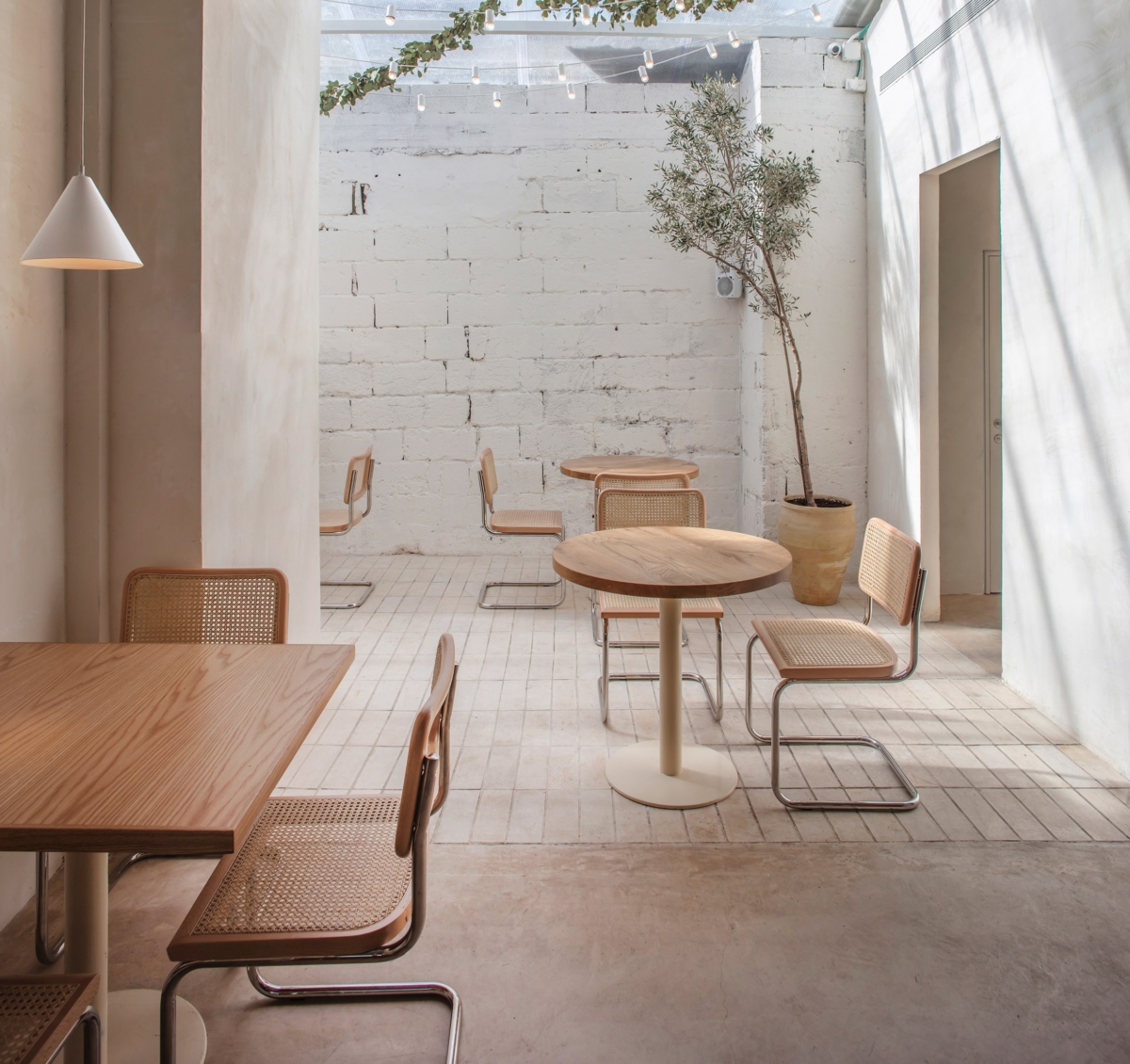
With Israel dubbed the vegan capital of the world thanks to the 400 vegan-friendly restaurants in the country, Opa is a plant-based restaurant located in Tel Aviv’s Levinsky Market that stands out among the many as a culinary experience like no other.
Utilizing the “fine and unique art of cooking with vegetables”, Culinary Institute of America graduate and Chef Shirel Berger serves dishes such as smoked beets, oyster mushrooms, Chinese cabbage and smoked Banero Pistachio coriander with lime, sourdough bread, and more.
Getting the majority of the produce from a family farm located 40 minutes away from the restaurant, the dishes are plated on ceramic plates created by Israeli ceramicist Merav Waldman.
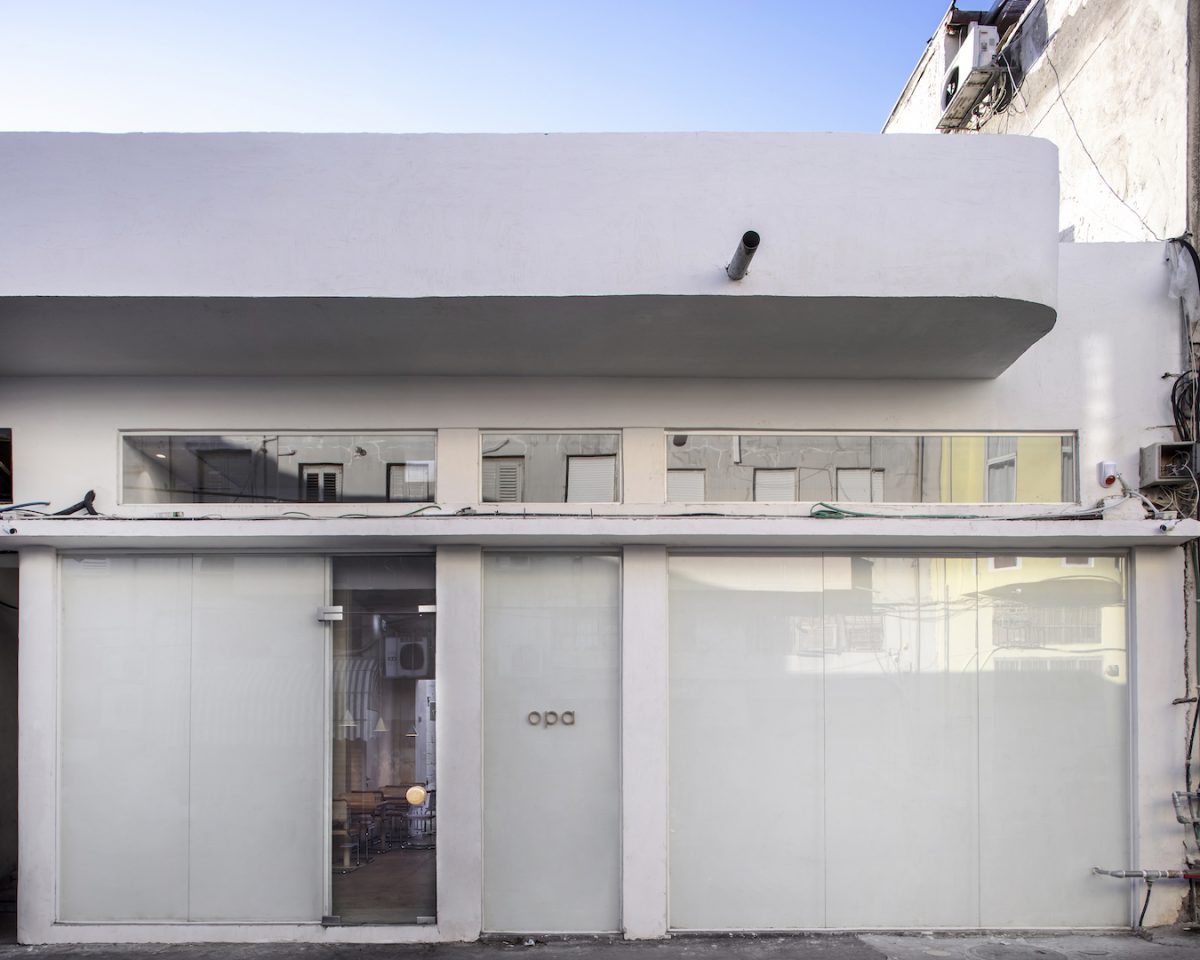
“I don’t define myself as vegan,” said Berger. “A dialogue with food must be deep and spiritual, we live in a fast and detached world from the earth. I was told once that in Buddhist temples only the masters can cook because the spiritual element is in the preparation of the food.”
“That’s the dimension I’m looking for in food. I don’t like industries in general, hence my research. Being labeled as a vegan prevents me from the freedom to understand what interests me, distances me from my inner truth and prevents me from developing,” explained Berger. “All this vegan fast food style of eating reduces the idea of veganism and is discouraging. I connect to the ecological side of veganism, and the compassion for the land and living creatures, but I’m sick of people sticking their noses into everyone’s business.”
Designed by architect and interior designer Vered Kadouri in collaboration with Tel Aviv design house Craft & Bloom, the 35-seat restaurant’s interior is described as being “minimal, clean, locally sourced with an air of understated elegance”.
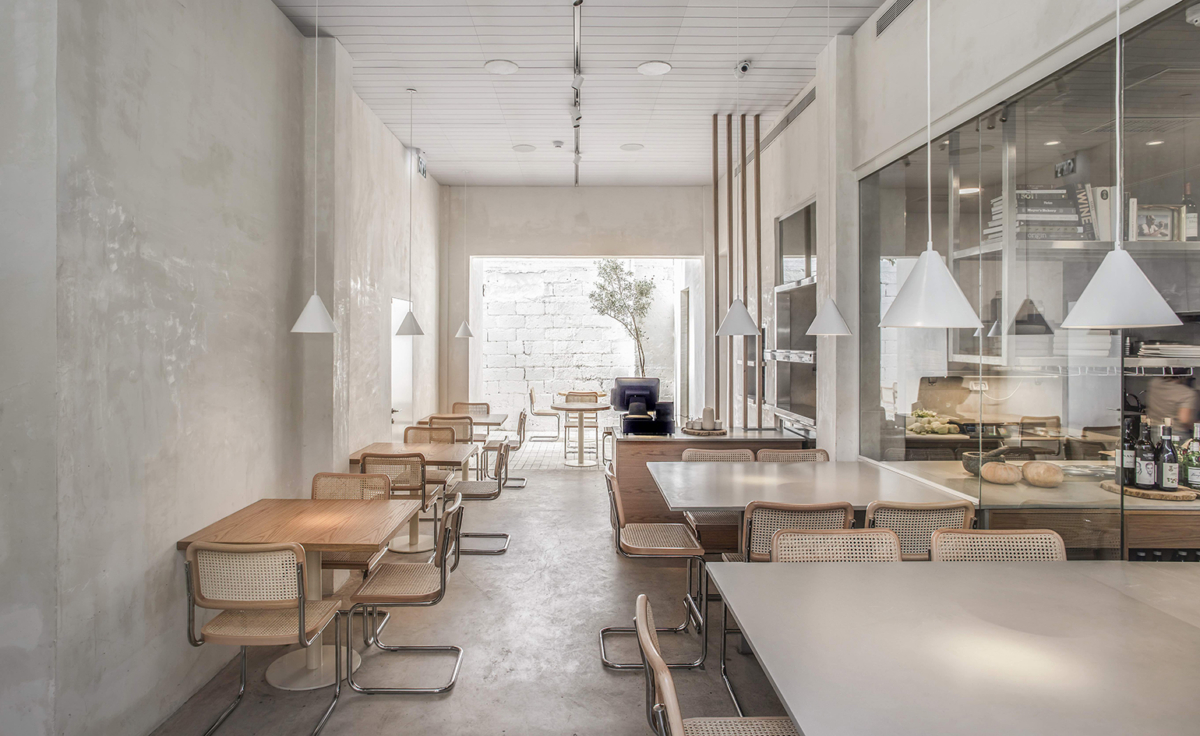
“This setting, while charming in its authenticity, posed an immediate and obvious design challenge,” said the designers. “How does one create a refined dining experience on a derelict street that is otherwise marked by wholesale storefronts and bodega-style corner stores?”
“In order to create the desired atmosphere, we closed the entire street-facing facade by removing all the existing metal grates and installing a combination of glass and dry wall painted in a natural finish, resembling something closer to an art gallery than a restaurant.”
“This technique created an intimate, womb-like effect that dulled out street noise and separated guests from the unruly outside world.”
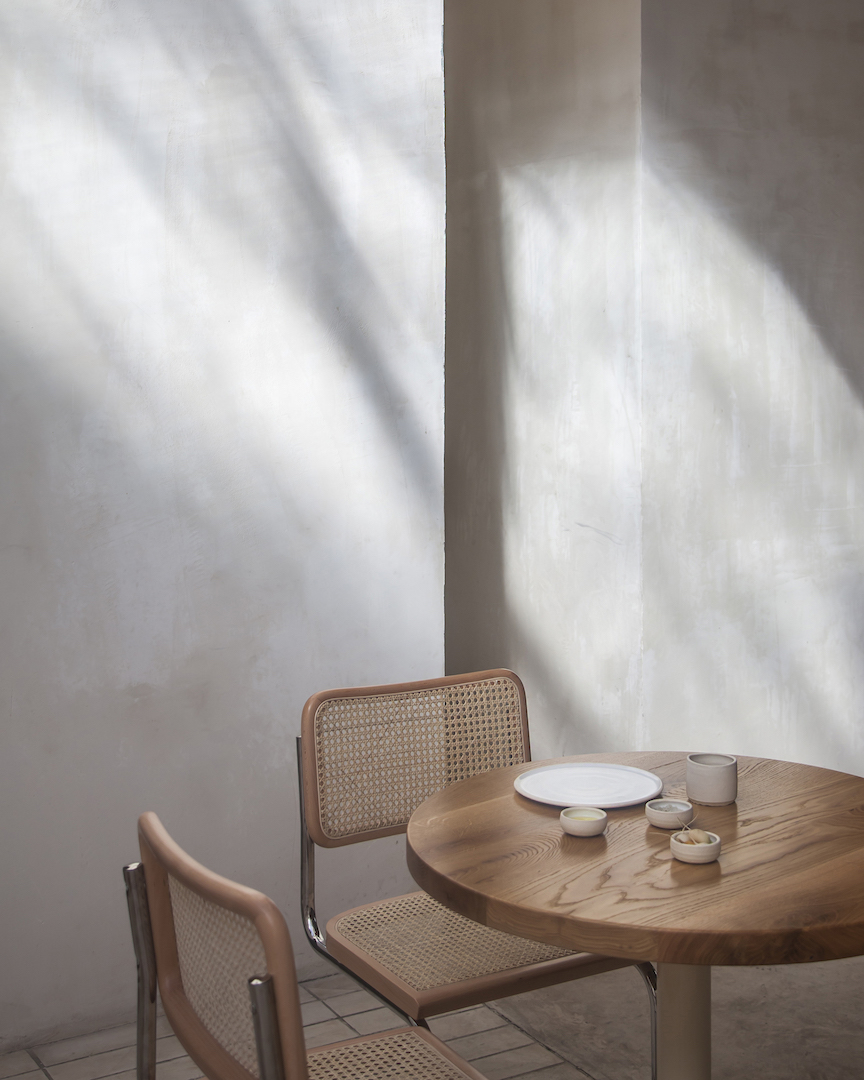
“The glass-enclosed kitchen is positioned rather rebelliously at the entrance to the restaurant, making it clear to arriving guests that the food is at the forefront,” added the designers.
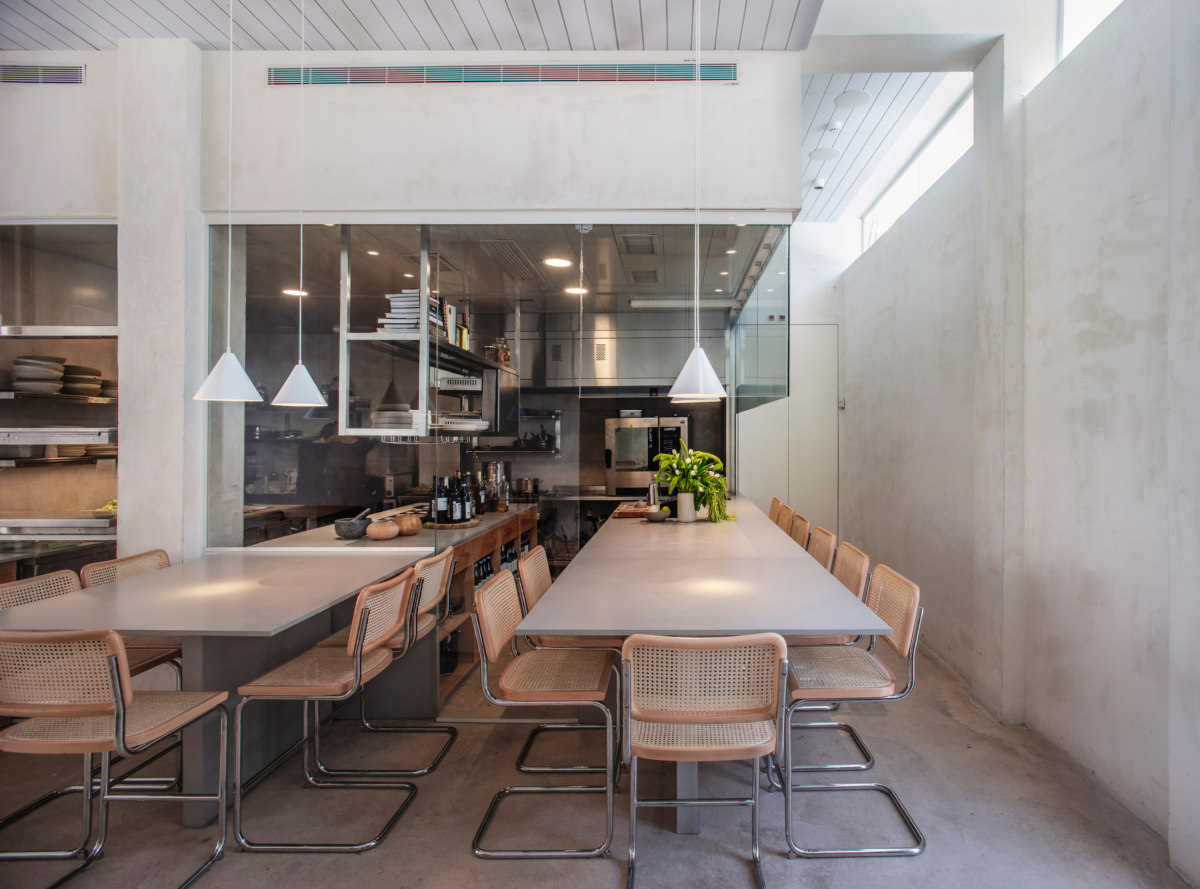
“Opa is a place whose cuisine is consumed as much with the eyes as it is with the stomach, and quality ingredients are prepared with respect, care and transparency,” said the designers. “Like Shirel, we believe in focusing on impeccable materials and exploring the ways in which they organically work together.”
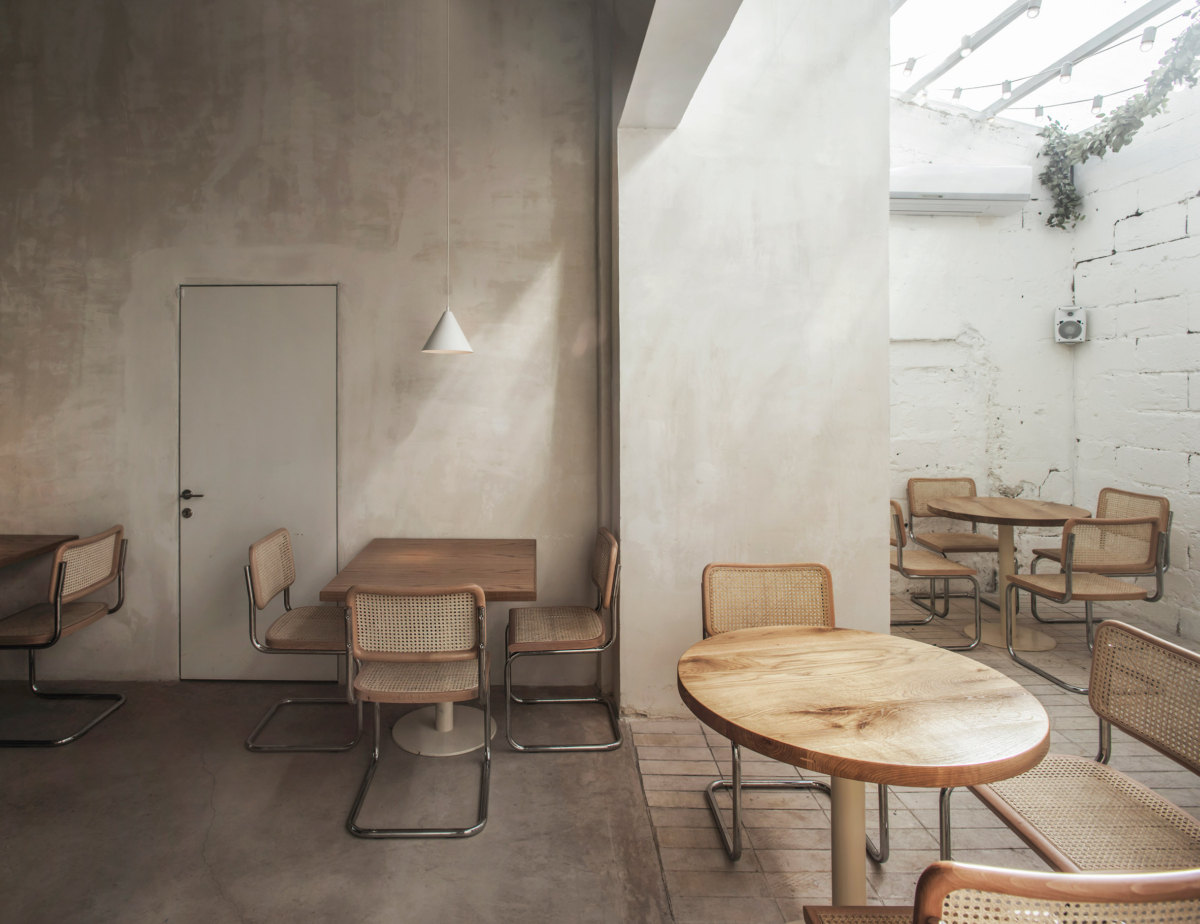
“Over-styling, much like over-spicing, is only necessary when the bare ingredients are in need of clever disguise. In the case of Opa, every element shines in its simplicity,” the designers noted.
Embracing locally sourced materials and artisans such as hand-cut Hevron stone for the patio, vases by Out Wandering ceramics, lights by a local craftsman in Jaffa, and soap by local grooming company Maapilim, the designers describe Opa as being a “peaceful cocoon amidst the chaos”.
“We have been deliberating for a long time about the appropriate location, and I understood that the Levinsky Market is exactly what I am looking for – people who have been cultivating their stores for decades,” said Berger. “There’s authentic honesty about it. We wanted a place for long term, and the renovation was not easy. The high investment is only in focusing on the food. “
To learn more about Opa, click the link below.





